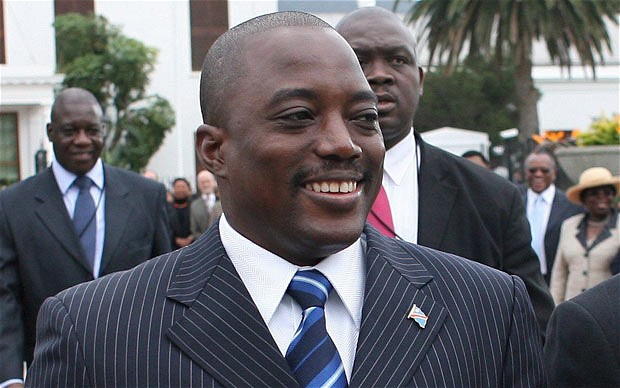With the Democratic Republic of the Congo depositing its instrument of accession on Wednesday, October 4 2017, the Nagoya-Kuala Lumpur Supplementary Protocol on Liability and Redress to the Cartagena Protocol on Biosafety needs only one more instrument of ratification, acceptance, approval or accession to enter into force.

DR Congo has thus emerged the 39th country Party to the treaty, which requires a total 40 instruments of ratification, acceptance, approval or accession to enter into force.
Dr. Cristiana Paşca Palmer, Executive Secretary of the Convention on Biological Diversity, said: “I welcome the accession of the Democratic Republic of the Congo to the Nagoya-Kuala Lumpur Supplementary Protocol on Liability and Redress to the Biosafety Protocol.
“I urge all Parties to the Biosafety Protocol that have yet to do so, to ratify the Supplementary Protocol as soon as possible. I also urge Parties to the Biodiversity Convention that have not yet done so, to ratify the Biosafety Protocol so that they can also become Parties to the Supplementary Protocol.”
Adopted in October 15, 2010 in Nagoya, Japan, the Supplementary Protocol to the Cartagena Protocol on Biosafety aims to contribute to the conservation and sustainable use of biodiversity by providing international rules and procedures in the field of liability and redress relating to living modified organisms.
The Supplementary Protocol will enter into force on the 90th day after the deposit of the 40th instrument of ratification, accession, acceptance or approval.
The Secretariat of the Convention on Biological Diversity (CBD) is developing capacity building materials and undertaking a range of awareness-raising activities to expedite the entry into force and implementation of the Supplementary Protocol.
Opened for signature at the Earth Summit in Rio de Janeiro in 1992, and entering into force in December 1993, the CBD is an international treaty for the conservation of biodiversity, the sustainable use of the components of biodiversity and the equitable sharing of the benefits derived from the use of genetic resources. With 196 Parties so far, the Convention has near universal participation among countries.
The Convention seeks to address all threats to biodiversity and ecosystem services, including threats from climate change, through scientific assessments, the development of tools, incentives and processes, the transfer of technologies and good practices and the full and active involvement of relevant stakeholders including indigenous and local communities, youth, NGOs, women and the business community.
The Cartagena Protocol on Biosafety and the Nagoya Protocol on Access and Benefit Sharing are supplementary agreements to the Convention. The Cartagena Protocol, which entered into force on September 11, 2003, seeks to protect biological diversity from the potential risks posed by living modified organisms resulting from modern biotechnology. To date, 171 Parties have ratified the Cartagena Protocol.
The Nagoya Protocol, on the other hand, aims at sharing the benefits arising from the utilisation of genetic resources in a fair and equitable way, including by appropriate access to genetic resources and by appropriate transfer of relevant technologies. It entered into force on October 12, 2014 and to date has been ratified by 102 Parties.
